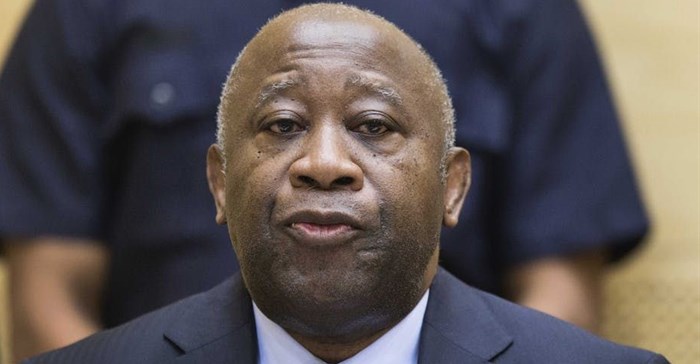Flirting with fire: African leaders and international law

The question is why?
The most likely answer is that they do so for political gain. Ugandan President Yoweri Museveni, who has been in power for 33 years, provides a good example of how to make sense of this otherwise contradictory behaviour.
On the one hand, he endorses the African Union (AU)’s critical stance against the International Criminal Court (ICC). The AU’s position is that the ICC unfairly targets African leaders while neglecting non-African ones.
But Museveni and his administration have also fruitfully cooperated with ICC investigators and prosecutors in building a strong case against former Lord Resistance Army Brigade Commander Dominic Ongwen – allegedly a key figure in Joseph Kony’s inner circle.
Museveni isn’t alone. Other African leaders have either considered or invited ICC scrutiny. For example, in 2004, former Congolese President Joseph Kabila invited the ICC to investigate crimes by rebel groups as did General François Bozizé of the Central African Republic in the same year.
The list of African leaders who called on the ICC includes the Malian military junta in July 2012 – just four months after removing President Amadou Toumani Touré from power. It also includes interim President Catherine Samba-Panza of the Central African Republic in late May 2014, and Gabonese President Ali Bongo Ondimba in September 2016.
The common thread in this list of African leaders who have sought ICC involvement in their domestic situation is that they’ve all seen the court as being beneficial to the survival of their governments. At the time they formally invited ICC scrutiny, all were facing serious internal threats to their tenure in power and saw the ICC as an instrument to criminalise their political rivals or military enemies in the eyes of the international community.
Shedding light on how these African leaders have instrumentally used international laws and courts for political gain allows scholars to showcase African actors as protagonists, rather than passive recipients, of international politics.
But engaging in legal brinkmanship is not without risk, as I argue in my latest article. The article focuses on the man who, more than anybody else, has come to regret his decision to invite ICC scrutiny: former Ivorian President Laurent Gbagbo.
How decision backfired
Contrary to common wisdom, Gbagbo – not Museveni – was the first to invite ICC scrutiny in mid-April 2003. He did so by lodging a declaration under Article 12(3) of the ICC Statute. This was a legal expedient that allowed him to accept ICC jurisdiction without ratifying its founding treaty.
As we now know, his decision backfired spectacularly years later.
Gbagbo’s original idea was to have the ICC, an independent international organisation, criminalise the rebel forces in the country. They had staged a coup d’état against him in September 2002, after which they gained control of the northern half of Côte d’Ivoire.
Unfortunately, his invitation of ICC scrutiny was untimely because the Court, at best, played only a marginal role during the first Ivorian civil war (2002-2007). It only rose to prominence in the aftermath of the 2010 presidential elections, the outcome of which Gbagbo stubbornly refused to accept. This precipitated the country in yet another cycle of civil violence.
As Gbagbo incited loyalist troops and militias to unleash violence against his political rivals, ICC chief prosecutor Luis Moreno Ocampo warned Gbagbo and his lieutenant Charles Blé Goudé that they would face trial in The Hague if they did not stop.
A historical review of those dramatic days suggests that Moreno Ocampo’s warnings failed to de-escalate the conflict. They could even have strengthened Gbagbo’s resolve to fight to the end.
By December 2010 Gbagbo knew he was at the top of the ICC’s “most wanted” list. Yet he continued to lead and incite loyalist troops until his arrest in mid-April 2011. Gbagbo was ultimately transferred to the ICC detention centre in late 2011. It was clear that his successor, President Alassane Ouattara, found it convenient to outsource a politically controversial trial to an independent and faraway third party.
Several years have passed from Gbagbo’s arrest and transfer to the The Hague. But it’s still too soon to write the final chapter of his tumultuous story.
Gbagbo made the headlines again in January 2019, when he was – somewhat surprisingly – acquitted by a panel of three ICC judges. A second panel of ICC judges ultimately opted for the conditional release of the Gbagbo and his co-accused Blé Goudé. They ordered their release from prison while prohibiting them to fly back home and resume their political life.
In February this year Gbagbo was transferred to Belgium, where he will await appeal.
Conclusions
My research into the ICC’s involvement in Côte d’Ivoire led me to formulate a few conclusions. The first is that a likely explanation for former President Gbagbo’s invitation of ICC scrutiny was that he hoped it would stigmatise his enemies as war criminals.
The second is that the threat of ICC indictment quite possibly strengthened Gbagbo’s resolution to hold on to power despite his defeat in the 2010 presidential elections.
Finally, since Gbagbo’s transfer to the ICC detention centre in November 2011, the Ouattara Administration has undertaken to strengthen judicial capacity, thus preventing key figures of the current government from following Gbagbo’s fate.
It bears recalling that the ICC steps in only when domestic authorities are either unable or unwilling to genuinely prosecute war criminals at home. By boosting judicial capacity, it becomes highly unlikely that the ICC will ever start new investigations into former rebel leaders – those who brought Ouattara to power whilst committing alleged atrocities.
This article is republished from The Conversation under a Creative Commons license. Read the original article.![]()
Source: The Conversation Africa

The Conversation Africa is an independent source of news and views from the academic and research community. Its aim is to promote better understanding of current affairs and complex issues, and allow for a better quality of public discourse and conversation.
Go to: https://theconversation.com/africa







